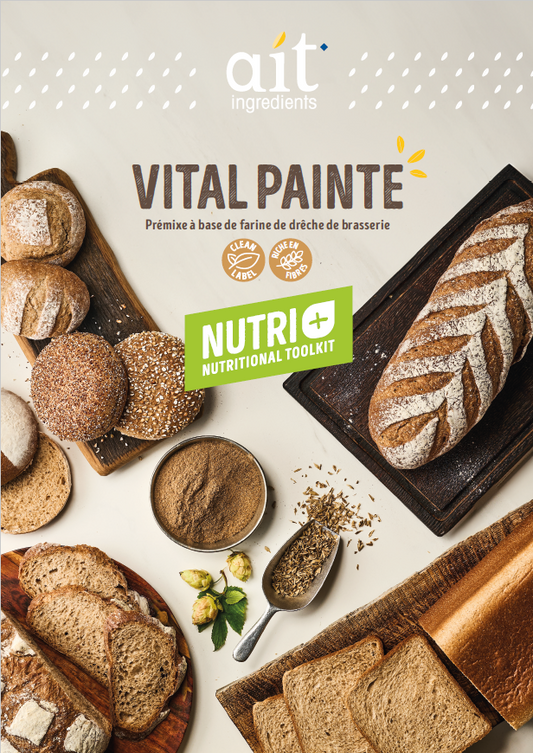How to reduce the environmental impact of baking?
Reading time: 5 minutes.
The observation
France is famous for its traditional baguette, which represents the country even abroad. It is not for nothing that it is listed as a UNESCO intangible heritage site!
But all this bread production is very consuming. Between the cultivation of the fields, the water used, the energy of cooking or even the packaging, the impact of the baguette is significant.
Every day, more than 27 million baguettes are sold in France. Let's imagine for a moment that the recipe for these baguettes would include 15% brewers' spent grain flour in the flour mix , the results show that the food industry has the potential to become more sustainable! 🥖
In a few figures, what does that mean?
The numbers speak for themselves:
✈ 364 Tons of CO2 equivalent per day, or the equivalent of 200 Paris-New York round trips per person per day.
💧 11,767,000 m³ of water preserved per day , the equivalent of 4,700 Olympic swimming pools per day.
🌾 485 km² of arable land saved per year, equivalent to 4.6 x the surface area of the city of Paris per year.
These figures show that we have real potential to reduce our ecological footprint. Of course, the idea is not to systematically add brewers' spent grain to every baguette, but rather to highlight the environmental benefits of using spent grain flour in food .
The following ?
Our initiative is not just a reflection on numbers, but an invitation for the players in the food industry to consider sustainable alternatives . To learn more about how we can collaborate to reduce the environmental impact of your formulations, contact us !
* We have carried out an internal Life Cycle Analysis (LCA) on the production of brewer's spent grain flour. In this document, the data are presented according to different indicators such as the impact on water resource depletion and the impact on climate change in kCO2 per kilo of product. The impact on land use is calculated in relation to the agricultural yield of wheat. These values were calculated from a typical recipe.



